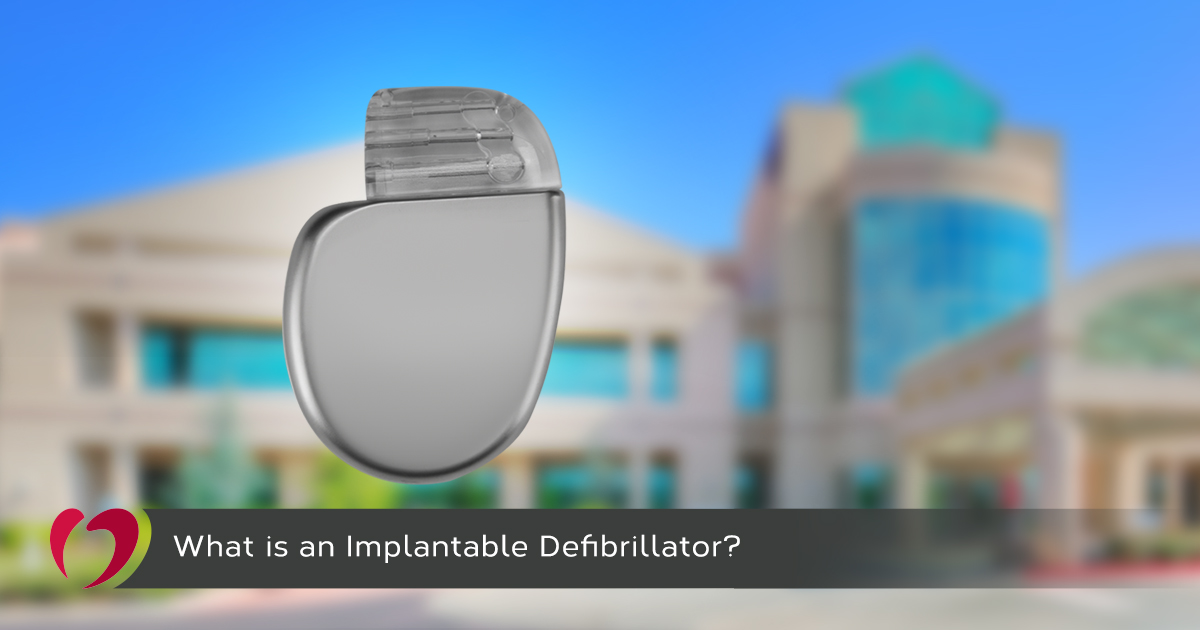What is an implantable defibrillator (ICD)?

An implantable cardioverter defibrillator (ICD) is a specialized type of device that can both pace the heart and defibrillate or shock the heart. Pacemakers are typically implanted for heart rates that are too slow in order to help keep it beating in a steady rhythm. The defibrillator’s main purpose is to shock the heart back into a regular rhythm if a life-threatening arrhythmia (ventricular tachycardia/fibrillation) were to develop.
Who qualifies for an ICD?
Typically patients with long-standing heart failure will benefit from an ICD. Heart failure or cardiomyopathy is diagnosed by measuring the ejection fraction (EF) of the heart. The ejection fraction of your heart is the percentage of blood that is pumped out of the heart with each heartbeat. This can be measured by an echocardiogram, nuclear study, or at the time of a heart catheterization/angiogram. If the EF is too low (≤35%), patients are at risk for developing life-threatening arrhythmias.
Once a low EF has been identified, your doctor may run additional tests to determine why your heart became weak and whether the cause can be reversed. A weak heart can be caused by many things, such as blocked arteries, infection, medications, genetics, or other systemic disease. If any of these can be resolved with medication or a procedure/surgery, the heart function may improve and a defibrillator may not be needed.
Physicians at the Oklahoma Heart Hospital’s Heart Rhythm Institute embrace open conversations about the benefits, the risks, and whether or not a defibrillator is right for the individual patient. The decision to proceed with an ICD implant is very individualized and there are many factors that are taken into consideration such as age and other medical conditions. As with any medical procedure, placement of an ICD includes some risk to the patient. The most common risks are bleeding, infection, injuring the vein or heart when placing the wires, or a punctured lung.
Patients with ICDs need to use caution in certain situations where they might be exposed to strong electrical or magnetic fields, such as during an MRI, when using welding or ungrounded electrical equipment, or going through security screening with metal detectors. The reason for avoiding these situations is because strong electrical or magnetic fields can interfere with the function of the ICD. The FDA recently approved the first MRI-compatible ICD, which may be beneficial for patients with conditions that require an MRI and who also need a defibrillator.
Want to know more about whether an ICD is right for you? Do you or does someone you know currently have an ICD? We invite you to join us for our quarterly meeting of The Arrhythmics, an ICD and pacemaker support group. We welcome people with pacemakers and defibrillators, as well as people considering these devices or family members of individuals with ICDs. For more information in between meetings, you can also join us on Facebook. For more information about The Arrhythmics, please contact us at (405) 608-3800.
